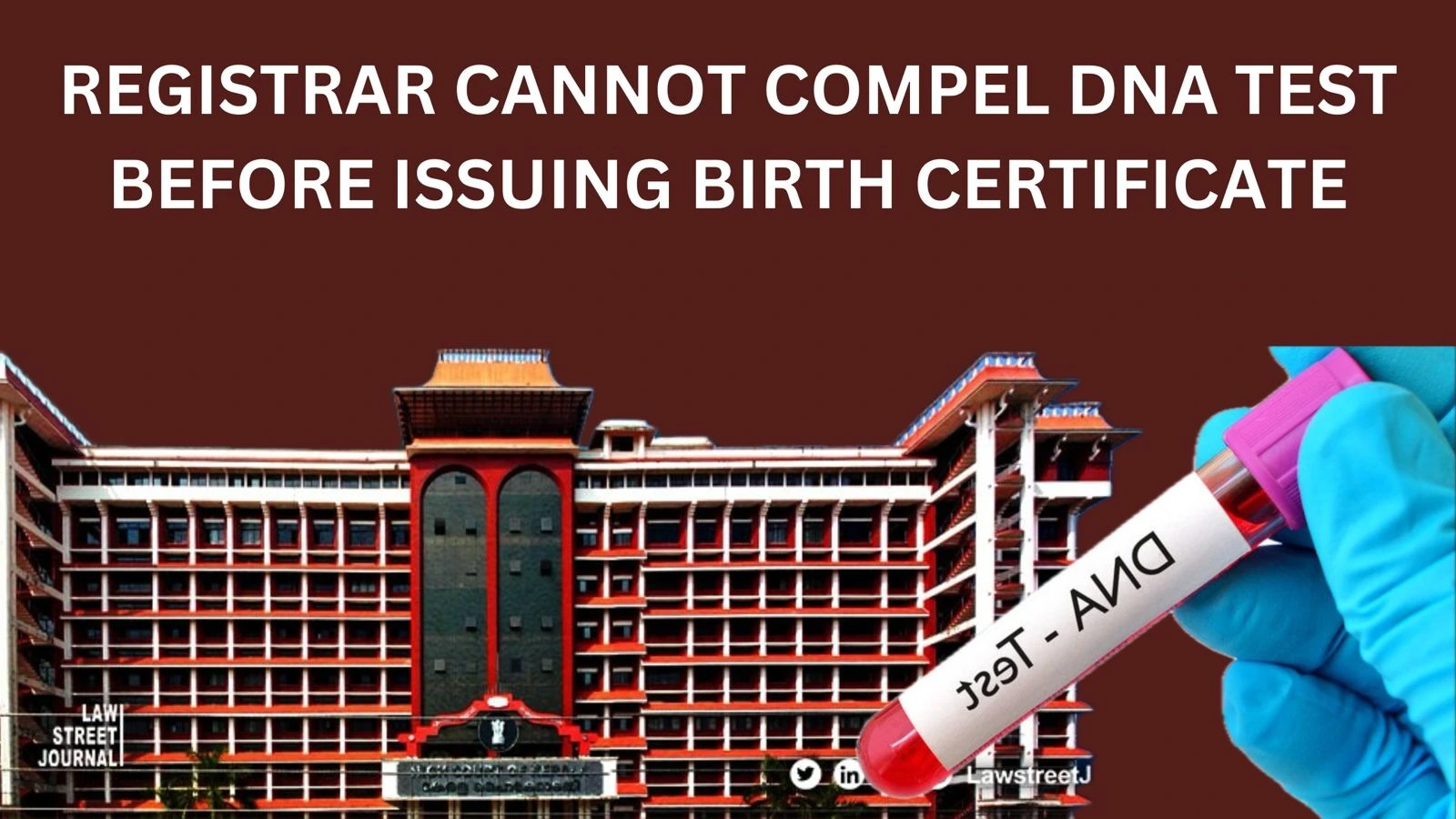KOCHI: In a significant ruling, the Kerala High Court has held that the power of the Registrars of Births and Death to call for information before issuing a birth certificate does not authorise them to compel the conduct of DNA test.
Of course, Section 21 (The Registration of Births and Deaths Act, 1969) confers the Registrar with the power to require any person to furnish any information within his knowledge in connection with the birth or death in the locality where that person is residing. This power to call for information does not authorise the Registrar to conduct a roving enquiry through police or to compel the child and the parents to undergo a DNA test, Justice VG Arun held.
The Court was hearing a plea seeking to direct the authorities to issue birth certificate of the child of the petitioners. The plea challenged the Registrars decision ordering the conduct of DNA test for proving the parentage of the petitioner's child.
While furnishing of false information is an offence punishable under Section 23(1)(b) of the Act, as per Section 23(2), the Registrar can be punished for neglect or refusal to register any birth or death occurring within his jurisdiction, without reasonable cause, the Court reiterated.
Further, the Court said that the Registrar cannot delay issuing a birth certificate without reasonable cause. And, that theres a difference between reasonable cause and mere suspicion.
A conjoint reading of the above provisions would show that the Registrar cannot delay the issuance of the birth certificate without reasonable cause. Mere suspicion, as is discernible from communication, is not the same as the reasonable cause mentioned in 23(2) of the Act.
In the judgement, the court also went through the objective as well as relevant provisions of the Act.
The Registration of Births and Deaths Act, 1969 ('the Act' for short) was enacted with the objective of implementing a sound and unified system for registration of births and deaths in the country. As per section 7 of the Act, Registrars have been appointed for every local area within the jurisdiction of a Municipality, Panchayat or other local authority. The third respondent is one such Registrar appointed. Sub section (2) of Section 7 requires the Registrar to enter in the register maintained for the purpose, all information given to him under Section 8 or Section 9 of the Act. Once the process of registration is completed, Section 12 makes it mandatory for the Registrar to issue an extract of the prescribed particulars relating to the birth or death to the person who gives the information under Section 8 or Section 9 of the Act.
While allowing the plea, the Court directed the Registrar to process the application submitted by the first petitioner and take a decision within two weeks.
The petitioner was represented by advocates PA Mujeeb, Reshma R, Nezrin T Ibrahim, Sreelakshmi P, Salwa T Muhammed, TA Athira and Muhammad Hashir M.
The State authorities were represented by Government Pleader Bimal K Nath.








![Kerala HC Quashes 498A Dowry Harassment Case Against Live-In Partner, Citing Lack of Relative Status [Read Order]](/secure/uploads/2023/08/lj_5693_1057c042-1e57-4e27-8c9e-25af0ec38ec4.jpg)
![Watching porn on mobile: Kerala HC highlights importance of mother cooked meals, outdoor sports [Read Order]](/secure/uploads/2023/09/lj_9155_Parental_supervision_of_mobile_phone_usage.jpg)
![Lakshadweep MP Mohammed Faizal Disqualified from Lok Sabha After Conviction Suspension Plea Rejected by Kerala High Court [Read Notice]](/secure/uploads/2023/10/lj_9640_87b5fd97-0e05-4ff8-9a99-3be1e4446192.jpg)




